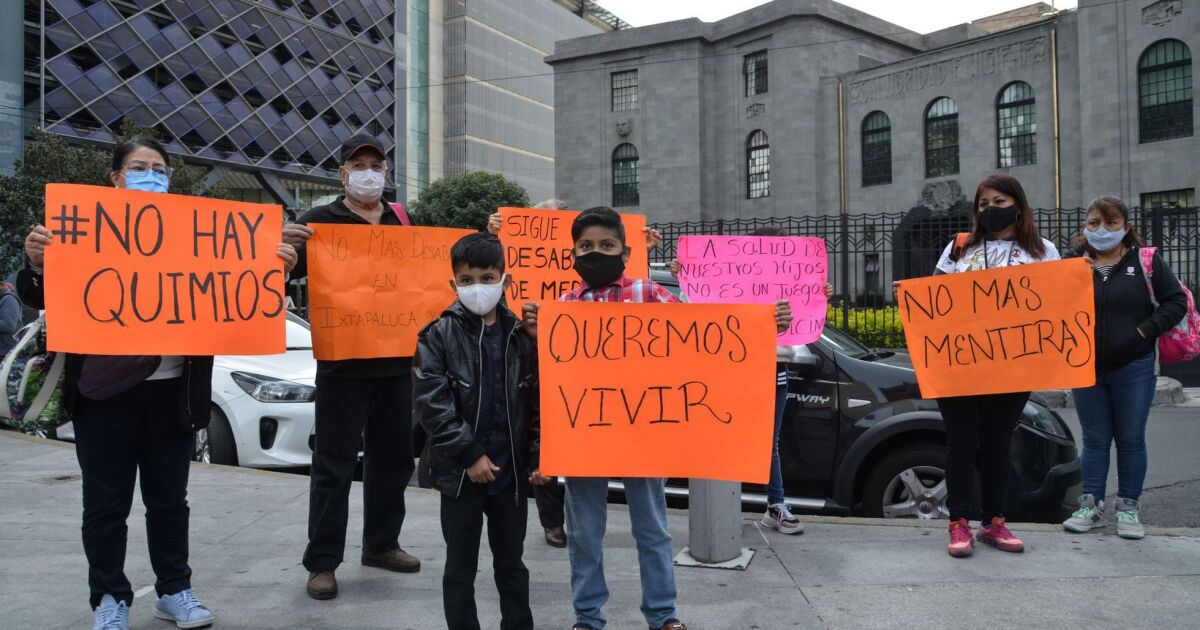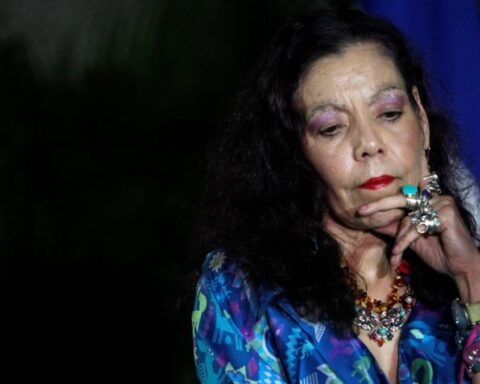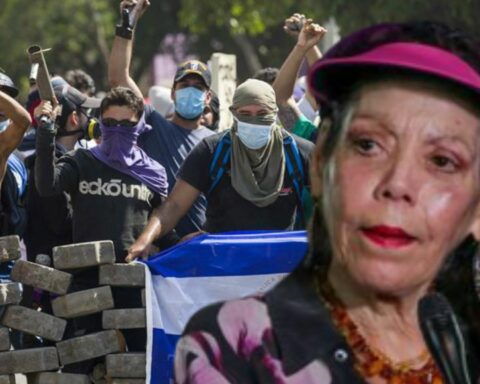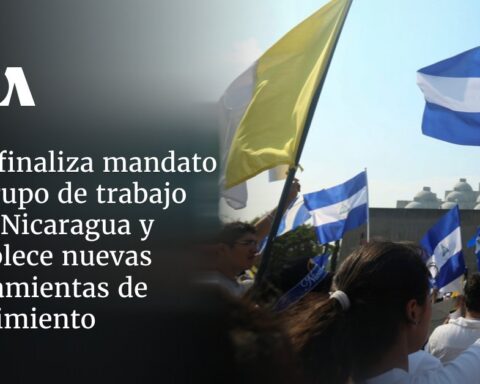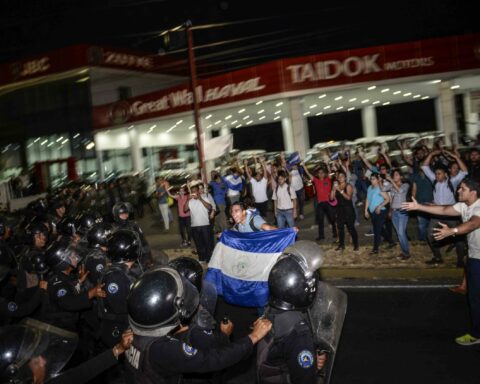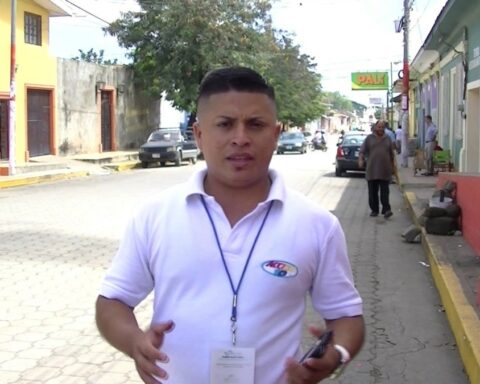American sanctions and Europeans, against a dozen officials who support the regime of Daniel Ortega and Rosario Murillo, as well as three public sector entities, forces those affected to find ways to circumvent – or openly, circumvent – it. civil and financial death, which means to be included in those lists.
On the morning of this Monday, January 10, while the state apparatus operated in order to allow Ortega and Murillo to perpetuate themselves in power, the European Union first, and the United States later, They expanded the list of sanctioned, which had the prompt English and Canadian approval.
Four sources – legal and finance professionals, as well as an analyst – who agreed to offer their statements to CONFIDENTIAL on the condition of keeping their names anonymous, they explained that although the regime can apply Law 842, or Law for the Protection of Consumers and Users, most likely they will continue to resort to various strategies to live with the effects – and the stigma – of the sanctions.
In the case of the Supreme Electoral Council (CSE), and the Nicaraguan Institute of Telecommunications and Postal Services (Telcor), the sources assume that the Administration will apply with them, the same medicine that it used to keep working -financially speaking- to the National Police when it was sanctioned in March 2020: open accounts in the Ministry of Finance.
“The Police have a main account in the MHCP, in which their additional income enters, such as the payment of citizens, in concept of fines and services. As a state company, I can transfer my accounts to the Treasury to continue operating normally. Now, if they sanctioned the Treasury, that would be something else, “said one of the sources.
In this line of action, the Ministry would be in charge of paying – with a fiscal check or cash – the salaries of the personnel of the sanctioned entities, as well as the suppliers, although in this case, the possibility that some companies that now work with Telcor or the CSE, choose to lose multi-thousand dollar contracts rather than risk contagion.
“It is reasonable to believe that some of these businessmen would rather lose those state clients than lose their American or European visa, which includes not one, but many countries. The next thing is that some of the officials of the affected entities are going to set up their own companies, to contract with the institutions they run themselves, or to hire businessmen who are loyal to them ”, they valued.
Sanctioning of the military, is a message to the regime
A brigadier general, two major generals, and the almost unknown Minister of Defense, are in the combo of sanctioned by the United States and the European Union this January 10, which, in the opinion of two of the professionals consulted for this note, “It is not a message for the Army: it is for the regime.”
“The message is: we are going to sanction everything that implies sustenance for the regime,” and one of its pillars is the Army, as well as the Police, the CSE, Telcor, and even Eniminas, who is also a military man. We are going to sanction everything that involves para-police or paramilitary support, ”he reiterated.
Another source believes that the US Army does not want its government to sanction the Nicaraguan Army, because “that would imply definitively breaking the little bilateral cooperation that exists, although there is still a fluid exchange.”
He bases his analysis on the fact that, in 2019 and 2020, the regime authorized the entry of troops, 200 to 250 military personnel and national guards, not because it is of interest to the Government of Nicaragua, but to both armies: the Nicaraguan and the United States.
“The most interested is the Southern Command of the United States Army, because Russia has expanded its area of influence, and with the restoration of relations with ChinaThey fear a greater influence of the Red Army in the Nicaraguan Army ”, he explained.
“There is a push and pull between the US Army and the Russian Army, in which the Chinese Army is now working,” he stressed.
“The Army wants to maintain relations with its US counterpart, because they know that governments are transitory, that Ortega will have to leave at some point, and that if they want to exist beyond that moment, they have to maintain relations with the United States Army, regardless of the policy of the Government of Nicaragua ”, he illustrated.
Political stigma
In cases where the sanction is personal -the minister, the secretary- those affected are forced to take palliative measures, because they can no longer be issuing firms in the bank accounts of the institution, but they can put a third party to be whoever firm.
One of the sources recalled that when the Minister of Finance was sanctioned, Iván Acosta, Vice Minister José Adrián Chavarría was appointed to sign, and when they sanctioned him, I know named Bruno Gallardo. “As they are cornered, they are naming other people,” he said.
The problem is that this is not replicable when it comes to managing the personal finances of those affected, because – although the US authorities do not place such emphasis on it – their spouses and children are also covered by this affectation.
Receiving this type of sanction is considered a kind of ‘civil death’, because the banks stop accepting your signature, you lose your US visa, and don’t even think that you will go abroad to look for work, because “you will be sanctioned wherever you are, so It can also be considered a ‘professional death’, because he will not be able to practice his profession ”, said one of the sources.
“Our banks, which are very traditional, affect family members yes or yes, even if they are not sanctioned, because they need to protect their cash from the sanctions that they could receive, if those sanctioned try to continue handling their cash through a relative”, added.
When someone receives such a sanction, “they cannot continue to circulate in the financial world: they cannot use debit or credit cards, or make transfers, or any type of bank transaction, and although the law can oblige banks to allow them to make local transactions, the person will be unable to do anything outside the country’s borders, “said another of the sources.
This professional recalled that figureheads (partners or family members) can be used to avoid responsibility, because “in Nicaragua we are very traditional. We do not have a corporate culture, and that is why these individual sanctions carry a lot of weight in a society like ours, “he said.
Another source said that although the spouse and children are included in the sanctions, they do not go beyond that family nucleus, so the resources can be transferred to other relatives or trusted friends, although that is very difficult to confirm, to Unless a forensic audit was done, authorized by a judge.
An additional option is to convert the cash into movable or immovable assets, which is off the radar of the financial system. What is difficult to escape from is the reputational risk that affects not only the image of the sanctioned person, but also that of his close relatives, who are inevitably associated with the stain carried by their parents or spouses.



